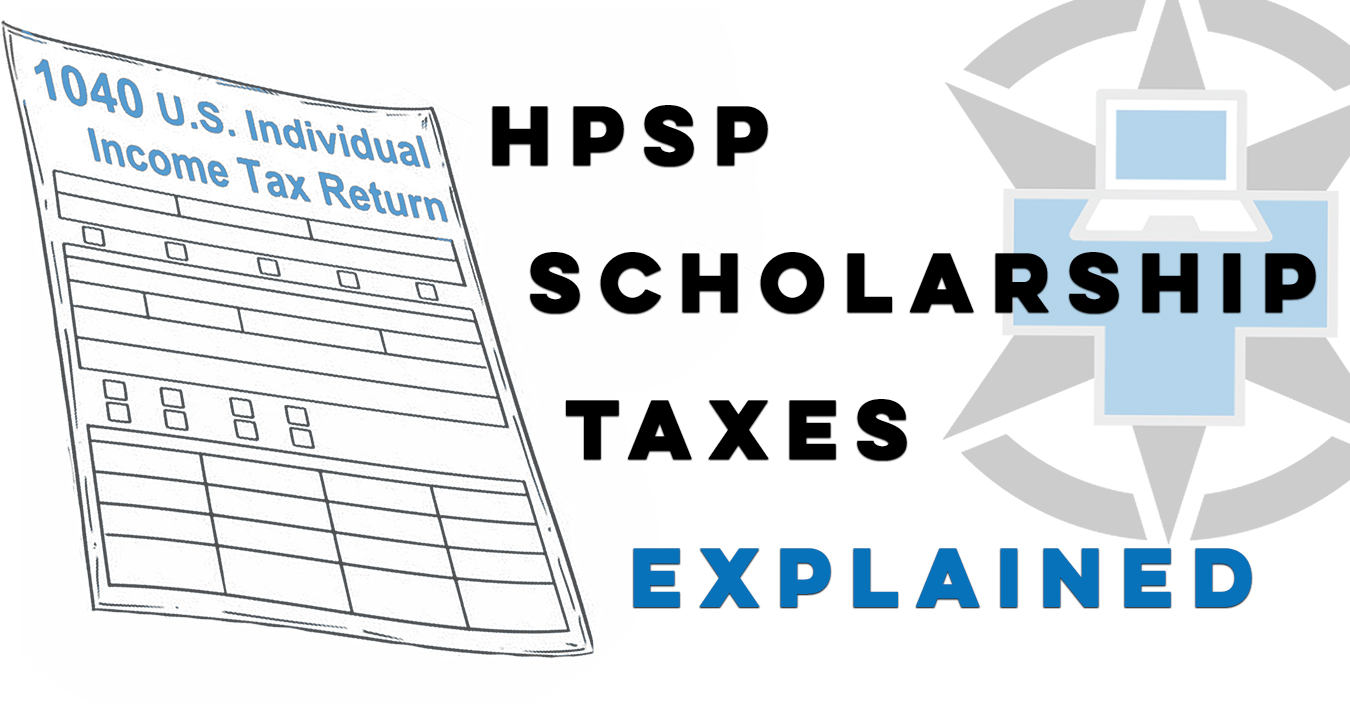Do You Pay Taxes On HPSP Scholarship? (Health Professions Scholarship Program)

If you are a recipient of the Health Professions Scholarship Program (HPSP), it's important to understand the tax implications of the scholarship. This article aims to provide clarity on what components of the scholarship are subject to taxes.
In addition to covering the cost of tuition and related expenses, the HPSP scholarship also provides recipients with a monthly stipend. This stipend is intended to cover living expenses, such as rent, utilities, and food, while the recipient is enrolled in their health professions program. While the scholarship funds that pay for the cost of tuition are not taxable, the monthly stipend provided to scholarship recipients is considered taxable income by the IRS, and recipients will need to report it on their federal tax return.
In addition to federal income tax, HPSP recipients may also be subject to state and local taxes on their stipends. Each state has its own tax laws, so it's important to consult with a qualified tax professional to understand the specific tax implications in your state.
The tax treatment of the HPSP stipend varies depending on the recipient's individual circumstances. For example, if the recipient is receiving other forms of taxable income, such as wages from a part-time job, the stipend may be subject to a higher tax rate. Filing taxes individually would likewise have different implications than filing jointly with a spouse who also has taxable income to report.
Since recipients of the HPSP scholarship are full-time students, they may be eligible for certain tax benefits that can help offset the tax liability on the stipend. The American Opportunity Tax Credit and the Lifetime Learning Credit may provide tax credits for education expenses, which can help reduce the amount of tax owed on the stipend. For example, if the stipend is used to pay for qualified education expenses, it may be exempt from federal income tax. Qualified education expenses include tuition, fees, required books, supplies, and equipment. If a portion of the stipend is used to pay for these expenses, the recipient may not have to pay federal income tax on this portion of the stipend.
In summary, the HPSP scholarship stipend is considered taxable income by the IRS and possibly your home state. However, the amount of taxes owed will be unique for each HPSP recipient due to differing financial circumstances. If you are a recipient of the HPSP scholarship, it's recommended to consult with a qualified tax professional to fully understand the tax implications of your stipend. Working with a tax professional will ensure you don't underpay or overpay your taxes. A professional is well versed on knowing all of the tax credits you may be eligible for and often can maximize your tax return. The fee for a tax professional is usually around $150 to prepare a tax return, which is money well spent to ensure your finances are in order and you aren't paying more taxes than necessary. This peace of mind will allow you to focus on your education as you strive to become the best healthcare provider you can be.
